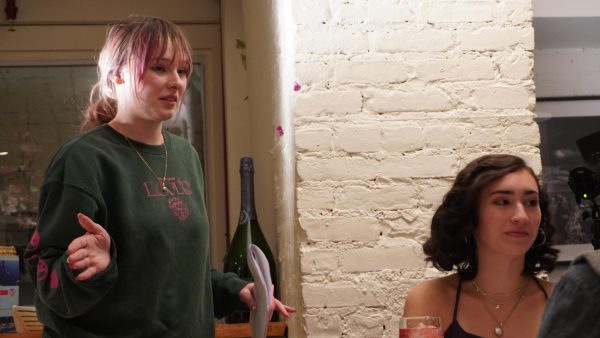Gap Year/Alternative Semester
How COVID-19 is Affecting College Students
Because of the spread of COVID-19 in recent months, many colleges and universities shut down their campuses and are forcing their students to work in an online format. With the semester coming to a close and the summer slowly approaching, a new question is raised about what faculty and administration plan to do for the 2020 fall semester, and will we even be allowed back on campus by that time?
Returning college students and high school seniors who were looking forward to college in the coming months are all faced with new obstacles and personal decisions where they have to decide if they even want to go to, or return, to their chosen universities. Whether their choice is based on financial reasons, fear, or lack of opportunities, students should know that they do have options for the fall semester, and their choice –whatever it may be– is valid and reasonable.
Many low-income students that were sent home this semester or high school seniors that aren’t attending a college yet won’t get the same hands-on help that they need with their financial aid applications. Of course, colleges are still encouraging students to apply. In fact, with schools across the nation shut down, the companies behind the ACT and SAT canceled administrations of the exams until June, prompting a number of colleges and universities to suspend the standardized test requirement or make it optional. Even though the pressure of standardized testing is gone, students still have the pressure of applying for colleges and somehow having to pay for them.
These financial issues also feed into the instability and fear that came out of this entire situation. While some students can’t afford next semester, other students simply don’t want to. Why pay thousands of dollars towards housing and tuition if all classes are going to be online again?
In a statement provided by Todd Heilman, the Vice President for Enrollment Management, he explains “During these unprecedented times with the COVID-19 global pandemic, we understand that many college-bound students are facing difficult choices. Some are considering a gap year (or semester), attending a school closer to home or online education, or moving forward with attending on-campus courses if restrictions are lifted and there is a return to normalcy in the fall. High school seniors are facing a great deal of uncertainty. This is not the senior year they expected. MMC is here to support college-bound students as we have always been. We are providing online and virtual resources to all students and families interested in attending MMC. Realizing that many students are facing challenges in obtaining information on academics, the application process, and affordability; MMC has developed a suite of virtual resources to assist families during this difficult time, such as one-on-one virtual financial aid sessions, academic program exploration with faculty members, virtual tours, virtual student panels, and a virtual accepted student day.”
There’s still much to consider because, for the most part, humans have a tendency to fear change. COVID-19 is a traumatic event, whether people care to admit it or not. Millions of people have lost loves ones, this has been a major toll on everyone’s mental health, there are *hopefully* major changes coming in our education system, and people don’t feel safe right now. All of these reasons can make a person feel out of control, but students should know that they still have options.
Common options of alternative semesters are study abroad programs and a semester at sea, but because travel isn’t safe right now, these programs will likely be affected by COVID-19 in the coming years. Usually, Marymount students can participate in study abroad programs in 49 countries under Consortia MMC Affiliations. This includes attending the Sorbonne in Paris, the University of Westminster in London, University of Sydney, Australia, or a Semester-at-Sea with independent study abroad services, and exchange programs with the American College of Thessaloniki in Greece, the Umbra Institute in Perugia, and the International Studies Institute in Florence in Italy.
Many students this year have engaged in many of these programs and COVID-19 has drastically influenced their experience. Cindy Sittler, the coordinator for study abroad at Marymount, explained “students who were studying abroad for the spring 2020 semester were greatly affected by COVID-19. For students planning to study abroad in Asia, where, because of the different academic calendar their programs had not yet begun, their programs were canceled. For students who were already settled into their new cultures and classes in Europe, I think having to return fairly quickly to the U.S. was rather traumatic. Initially, there was anxiety about whether they would be able to continue their courses remotely. Fortunately, in the end, it worked out that all students are able to complete their courses remotely. I think many students were reluctant and sad to leave their new friends and the places they had already grown to love.”
Sittler went on to explain that it is hard to say how COVID-19 will affect students planning to study abroad during the 2020-2021 academic year and in the future. While most summer 2020 study abroad programs have been canceled, a small number of MMC students are still forging ahead with their applications to study abroad for the fall 2020 semester, but they may not be able to study abroad this fall.
Sittler still encourages students to study abroad once the C.D.C and the U.S Department of State change the travel warnings and it is safe again.
“I think it is important for students to study abroad because they will deepen their knowledge and understanding of international, political, and cultural affairs,” Sittler explained. “The independence, adaptability, and flexibility that students must master when studying abroad are attractive attributes to employers. Depending on where students study abroad they may also learn a new language or improve their language skills. I think it is important for our country to have people who can see the world in different ways and have an appreciation of different cultures.”
Students also have the option of a gap year or a sabbatical, where they can do whatever they choose. Typically students use their gap year to take advanced courses, learn new subjects, study, volunteer, travel, apply for internships, work, etc.
Abby Younger, a first-year student at Marymount Manhattan College, speaks very highly of a gap year as an option for students. “I personally wouldn’t take a gap year, but I know a few of my friends have. I think that taking a gap year can be really beneficial especially for people who aren’t sure what they’d like to study yet.”
Scientifically, Younger is right about her options on taking a gap year. Findings by Honorary Professor and Dr. Andrew J Martin in the Journal of Educational Psychology shows that gap year participation “positively predicts academic motivation and that this effect is significant over and above the effects of demographic covariates.”
Celina Chase, a junior at Marymount, doesn’t see herself going to another school, but she also doesn’t feel like online courses are the best option for her. If she were to take a year off, she said that she would “work at the job I have now to save up and if things slowly start to get better I just want to enjoy everything and teach myself what I would’ve learned in school by experience.”
Just because alternative semesters and gap year programs are an option, that doesn’t mean they are for everyone. Many people say that they don’t know if they would come back if they took a year off. Whatever your reason, the semester is coming to a close and the ball is now in your court. Make a choice that will make you happy because every person is different and every choice is the correct one.

Rayiah Ross is a senior majoring in digital journalism and minoring in creative writing. She has a focus on cultural criticism and social commentary.





